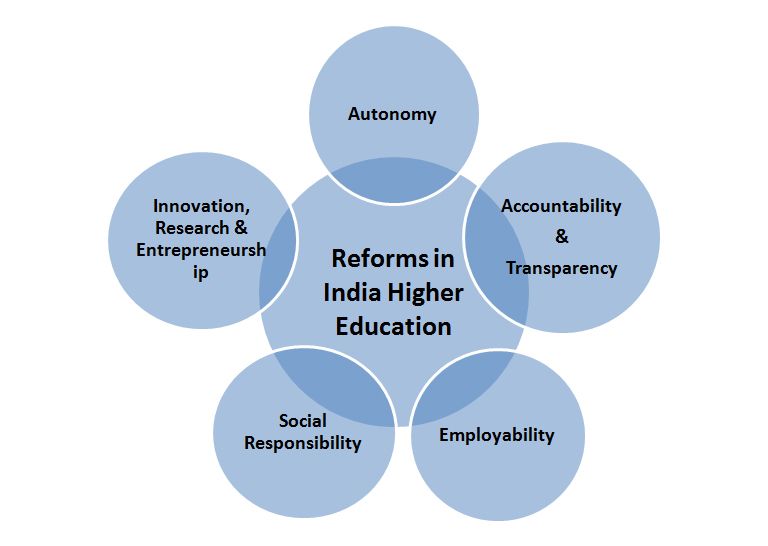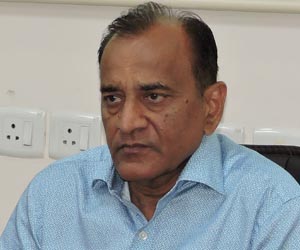The Union Government’s decision to abolish the University Grants Commission (UGC) and replace it with a Higher Education Commission of India (HECI), has been widely welcomed by experts in the education sector. Though some of them have expressed reservations over certain provisions of the proposed Bill that will enable the transition, and have advised caution, there is consensus on the fact that time had come to overhaul the governance of the country’s higher education system. The Centre’s decision, incidentally, is in consonance with its earlier initiatives to reform higher education — regulations for grant of graded autonomy to universities, open distance learning and online degrees; granting autonomous status to colleges and graded autonomy to universities; and, reforms in the functioning of the National Assessment and Accreditation Council (NAAC).
The Union Ministry issued a Press Release recently, which argued in favour of the need to have what has been named as ‘The Higher Education Commission of India (Repeal of UGC Act) Act, 2018’. While inviting comments from educationists, various other stakeholders and the general public that would help in drafting the proposed legislation, the Press Note identified the objectives of the proposed change. It said that the goal was to ensure less government and more governance in management issues of higher educational institutions, separation of powers of issuing grants (which would be vested in the Ministry) and of managing academic standards (which would be a responsibility of the proposed Commission), and giving powers to the Commission to not just inspect institutions for academic quality but also impose fines and even order the closure of such institutions that fail to meet the standards set despite undergoing a mentoring process (which the Commission will put in place).
The decision to scrap the UGC was not taken overnight, nor was it done without due diligence. As Minister for Human Resource development (HRD), one of the first decisions Smriti Irani took in 2015 was to undertake a review of the UGC’s functioning. A panel headed by former UGC chairperson Hari Gautam concluded that “reshaping or restructuring” the existing body would be a “futile” exercise; nor would any amendment to the UGC Act be of any use. The Committee recommended the establishment of a National Higher Education Authority through an Act of Parliament to replace the UGC. The Hari Gautam panel was scathing in its criticism of the failures of the UGC, noting that it had been “plagued in the main by reductionism in its functioning”; that “all kinds of people” had been appointed to key positions; and, that the “working of UGC is so ad hoc that many do not know how many bureaus represent various disciplines…” In short, the UGC had failed in its task of “being a sentinel of excellence” and had “embraced the relatively easier function of funding education”. The HRD ministry had thereafter noted that it would “seriously look into” the recommendations. At that point in time, it remained cautious, taking the stand that the UGC could not be “unilaterally scrapped” since it had been created by an Act of Parliament. Work, therefore, was on behind the curtains since 2015.
Interestingly, in September 2014, a newly minted Modi Government had withdrawn the Higher Education and Research Bill, 2011, which had sought to create an overarching regulatory authority to oversee higher education in the country. The Bill had been introduced by the Congress-led UPA regime, with Kapil Sibal as the HRD Minister, and was the outcome of recommendations made by a panel led by the noted academic, Yashpal. It proposed to abolish the UGC as well as the All India Council for Technical Education (AICTE). The Modi regime withdrew the Bill on the ground that a parliamentary panel had expressed reservation over certain provisions which, it believed, went against the country’s federal structure.
The UGC came into existence as a statutory body through the UGC Act of 1956, and was modelled along the lines of the University Grants Committee of the UK. The British panel was scrapped in 1989 after seven decades of existence, while the UGC continued to be around with the primary task of both funding and supervising the standards of higher education in India. Along the way it lost the plot, and among other things, failed to adapt to changes in the education sector, brought about by increasing liberalisation and globalisation. Even as there has been a rapid rise in the number of universities over the last six decades — from roughly 30 universities in 1956 to nearly 670 in 2015 — there has also been the problem of falling educational standards, which the UGC failed to address. Many academics, including Amrik Singh who authored the book, Fifty Years of Higher Education in India (which was published in 2003), believe that the term ‘Grants’ in the UGC name led to much confusion, with the UGC authorities concluding that their primary task was to disburse funds and not so much as to oversee quality.
That said, the proposed higher education commission Act has its share of critics. According to them, the promise of ‘less government and more governance’ would not be met through the provisions that are part of the proposed Act, now open to public response. The search-cum-selection committee to choose the chairperson and members of the HECI would be packed with government nominees. Neither experts in the education sector nor teachers would be part of the selection; the dropping of the Secretary in HRD ministry from the Committee is only of nominal importance, given that the secretary to the Commission would be an official of the Union Government. The other criticism is that the HECI could end up with enormous powers which could be (mis)used, especially by the Central Government since the latter would have the power to grant funds — or to withhold the money on grounds of poor academic standards. Such powers would be exercised in the States as well, despite the fact that education is on the Concurrent List. The State regime would have little say since matters of grant and certification on academic excellence would be done by the HECI and the States would have to abide by its directives.
The third niggling issue which experts have pointed out relates to the core — academic excellence. Since the presence of the Government would be overbearing through methods such as the selection process etc., the inputs of teachers and students would, even if they come, have a minimal role to play in decision-making. If the UGC failed to uphold academic excellence because of its lopsided priorities, the new Commission, critics say, could be an equally big failure if it allowed the Government alone to determine such excellence.
These are some of the pitfalls that the Centre must avoid. Besides, it would have to bear in mind that, for the HECI to make a positive difference in the arena of higher education, other specialised regulatory bodies too must be nimble-footed. The HECI’s impact on the larger educational sector would, for instance, be less than desired if those such as the AICTE and the Medical Council of India lag behind. Admittedly, reforms are on in these bodies as well. But for now, it’s time to say goodbye to the UGC.
(The writer is a senior political commentator and public affairs analyst)
(The paper does not necessarily represent the organisational stance. The author certifies that the article/paper is original in content, unpublished and it has not been submitted for publication/web upload elsewhere, and that the facts and figures quoted are duly referenced, as needed, and are believed to be correct).
(The paper does not necessarily represent the organisational stance... More >>
Image Source: http://static.businessworld.in/upload/mFqoTR_1527678974797.jpeg











Post new comment